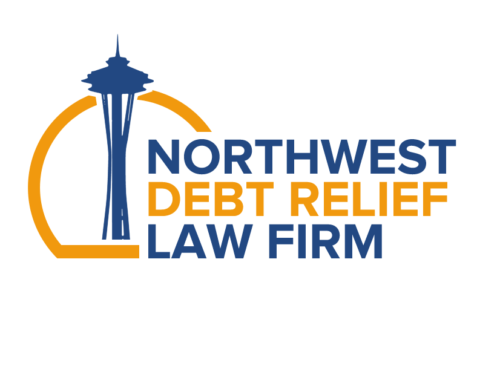| Katherine: | Attorney McAvity? You’re going to help me with your name. We’re going to practice this again. Attorney McAvity. |
| Tom: | I’ll try. I’ll try. |
| Katherine: | Is here today to answer questions about bankruptcy. He’s given me a little grace on his last name here. He’s going to spend some of the next several months with us answering all of your questions when it comes to bankruptcy, anything from the terminology and the process and really helping you to be more comfortable with the process and helping you understand that it’s not as scary as it may have felt the moment you had to make the decision about this. We’re going to start with some terms that our listeners have been curious about. I’m glad that you’re here today to help us get some answers on those. Thank you for being here with us on This Needs To Be Said radio. |
| Tom: | I’m happy to be here. |
| Katherine: | One of the first times that we came across was a cram down. What is a cram down in terms of bankruptcy? |
| Tom: | A cram down actually is a wonderful feature of chapter 13 bankruptcy, which most of our clients don’t initially want to file, because they’ve heard that they’re going to have to make payments back and that it’s not going to be as good as a Chapter 7 bankruptcy where they are done in a few months. Then a lot of them hear about the cram down future and that they wanted to file chapter 13. What a cram down is, is it’s a feature that’s only available in Chapter 13. It comes up in a few different situations. Let’s say you own a car, and you owe $10,000 on it, and it’s worth about 5. For most of us that’s often the case. Cars are rarely worth what you owe on them. You can kind of feel yourself, as I have on numerous occasions and told myself that the car was probably worth what I owed on it, but usually most of us are underwater on our cars. The cars are worth a good deal less than what you owe. In this example if you own a car and it’s worth less than what you owe, what you’re entitled to do is just repay back the amount that the vehicle is worth through the chapter 13. Where in Chapter 7 you might keep your car loan but have to repay $10,000 to your car creditor, in chapter 13 you might repay only 5. It’s a great feature. Often in a 2 car family it can just save a family a ton of money. It can come up and see whether instances. One where with personal property … One thing I should mention, that I forgot to mention, is that the cram down for cars is available where the car was financed at least 910 days ago. That’s the one condition for doing the cram down. The other instance where it can come up is personal property. Let’s say you financed a refrigerator and now the thing is worth 50 bucks to have someone tow it away, and you still owe $1,000 on it. You’re entitled to just repay the amount that the refrigerator is actually worth. With personal property the only condition is that it has to have been financed over a year ago. Again as you can imagine with TV loans, furniture loans, refrigerator loans usually you owe way more than the stuff is worth. There’s a potential there for a lot of savings. The final situation, you don’t see it come up much, although it sure would be wonderful if it did, is was investment property. Say you have a rental property. You’re entitled to cram it down to the amount of the property is actually worth. The reason why this doesn’t come up that much is yes, you can cram down that rental property to the actual value of the rental property. The problem is you have to repay the entire amount during the 3 or 5 years chapter 13 plan payment. For most of us that’s just not realistic, so you don’t see that come up a whole lot. The other thing I should mention for all of these is in a lot of cases we are reducing the interest rates as well. Normally it’s somewhere between 4 and 6%. For a lot of us we are paying a whole lot more than that in interest, so once again chapter 13 provides a great opportunity for a family to do some real savings. Sorry to talk your ear off. |
| Katherine: | No. I’m taking notes as you’re talking. |
| Tom: | About the cram down. |
| Schedule an appointment | |
| Katherine: | Not at all. I’m taking notes as you’re talking, because these are things I didn’t even know. When the question came to me, I’m just like “I don’t know, but I know somebody that can answer the question.” This is great information. What about collateral valuation? What does that mean? To me that’s like “blah, blah, blah.” What does it mean? |
| Tom: | It sure sounds like “blah, blah, blah,” doesn’t it? |
| Katherine: | Mm-hmm (affirmative). |
| Tom: | There’s what it means and what it … I’m just going to say what it tends to actually mean. When the court is looking at what this stuff is worth … Let’s take this example where the car is worth 5 and you owe 10. For practical purposes we might want to, our firm and the consumer, we might want to say this car is worth only 5, because let’s say that’s the wholesale value of it. We want to give a real value, whereas the creditor will want to give a retail value, which is really high. I think the reality is, for practical purposes, though there’s a much longer legal definition of it, the judge is going to ask us to meet somewhere in between those two values. Probably a little closer to their creditors value honestly, but in most cases it doesn’t matter. The car or the personal property is so underwater that meeting somewhere between wholesale and retail, maybe a private party value, if you look at that on Kelley Blue Book for cars, our clients do really well just striving for a private party value, which is probably fair. We’re talking about what the property would sell for to a private party, not what it would sell for on a car lot. |
| Katherine: | What about if someone’s unemployed? Of course when people are unemployed things financially change. Get my tongue together. Is bankruptcy something that they can consider? |
| Tom: | Absolutely. Particularly for chapter 7. At least in assessing whether the consumer is eligible for bankruptcy, it makes the inquiry really easy, because if you’re unemployed, obviously you should qualify at least on the basis of looking at your income. Even for chapter 13 though, we see a lot of people filing chapter 13 where they’re just receiving unemployment, and they end up making some kind of nominal payment to the bankruptcy court. It’s allowed. The only qualification for chapter 13 is that there’s a regular source of income. Unemployment is a regular source of income. At least we hope. Probably more regular than a lot of sources. The answer is yes. For our firm we make it really easy if you’re unemployed, because we are one of few firms that will actually take some of the attorney fees before filing, but most of them afterwards in monthly installments, which makes it a whole lot easier if you’re unemployed to get a case filed. |
| Katherine: | What’s the difference between a mortgage modification and bankruptcy? |
| Tom: | They’re not mutually exclusive. I think a lot of people think … They think of it that they have two options. Let’s say that you’re behind on your mortgage. You think, “I either need to get this mortgage modified or I need to file a chapter 13 bankruptcy.” A chapter 13 bankruptcy will enable you to take the mortgage arrears that you’re behind and repay them over a 5-year period at a 0% interest. You can’t beat it in terms of an interest rate, because you’re paying what you’re behind at 0% interest. It’s almost like someone’s giving you an interest-free loan. They really kind of are over a 5-year period. Maybe you pay that back slowly, or maybe you pay most or all of that back in one lump sum at the end of a 4 or 5-year period. That’s how you can handle mortgage arrears in chapter 13. In a mortgage modification you are often either increasing the length of the loan or hopefully decreasing the interest rate, at least this is in theory, and taking those mortgage arrears that you’re behind and putting the back in the loan. Where I don’t like the mortgage modification is if you’re taking those arrears and putting them back in the land and you’re not lowering the interest rates, and just the lengthening the term of the loan. You’re adding potentially anyway tens of thousands of dollars to your mortgage obligation, whereas in the chapter 13 you could be repaying that at 0% interest and not accruing more and more interest debt over the course as the years go by. I would like to point out that they’re not mutually exclusive. You can always file a Chapter 13 to stop a foreclosure to start that process or get a loan out of default, and then pursue a mortgage modification while you’re in chapter 13. In fact what we’ve seen is lenders who were not willing to modify mortgages at all, this is often the case, is you’ll see a lender who is not willing to modify a mortgage prior to the chapter 13, you can’t even reach him on the phone, they come to the table after the chapter 13 has been filed. It can often be an impetus |
| Schedule an appointment | |
| Katherine: | Why is that? |
| Tom: | You know what I think it is they don’t want to be repaid the mortgage arrears at 0% interest over 5 years. The modification becomes a little more attractive to them. I think also potentially they see that you’re eliminating all of your other debt, so maybe that is one of the obstacles to getting the modification done. That’s removed or is on its way to being removed after the bankruptcy is filed. It could be that as well. |
| Katherine: | That definitely sheds a whole lot of light on what I was even thinking. I was like, “Well, wouldn’t it just make sense that one would eliminate the other,” but you’re saying that there’s a possibility that they both could be used together, and that the bank may be more enticed to listen to what you have to say. |
| Tom: | Absolutely. |
| Katherine: | This last question I have for you until our next meeting, we’re talking about all sources of income. We have tax season that is just passing is. Maybe some people have still delayed or maybe they’ve gotten an extension. When they think about getting a tax refund they’re concerned that “If I file bankruptcy, will that money be garnished? Will my wages be garnished if I file bankruptcy?” |
| Tom: | You certainly won’t get garnished after you file bankruptcy at all. Bankruptcy will stop almost all garnishments from taking place. If you’re getting garnished right now, the surest way to stop that garnishment is by filing bankruptcy, because the creditor can’t garnish you afterwards. That’s the solution. Please, if you’re out there and getting garnished, there’s just no need for that going forward. Please contact a bankruptcy attorney immediately to put an end to that. In terms of the tax refund, you usually can protect a tax refund if you live in a state that has the federal exemptions, because it provides enough protection to make sure that you keep that next tax refund. I can’t say that that’s always the case, but it’s almost always the case. |
| Katherine: | It’s a possibility. |
| Tom: | There are a lot of states that have large enough exemptions to enable you to do that as well. In chapter 13 sometimes you’re asked to contribute part, and in some states all of your tax refund. I know that where I practice in Oregon and Washington, in the case of Washington you can always keep a large part of the tax refund, and normally in Oregon you can as well. I would say the norm is that you’re going to be asked to contribute some part of your tax refunds. |
| Katherine: | That would be fair enough. Let everyone know how to pronounce your name, and teach me again how to pronounce your name, and then how can they get in touch with you outside of This Needs To Be Said? I gave it my best try. I did. I thought I had it. |
| Tom: | No, I thought you were great. I thought you were great. You did better than some of my family. It’s Tom McAvity. I can be reached at our Seattle office at 206-674-4559 or our Portland office at 503-232-5303. Our website is and nwdrlf.com. That’s the acronym for Northwest Debt Relief Law Firm, so nwdrlf.com. |
| Katherine: | You also have a book on your website that people can get a copy of. |
| Tom: | The Benefits of Bankruptcy. I wrote it about a year ago, because I just wanted to have material so that if people were wondering what the benefits of bankruptcy were, and either they weren’t ready to come into a lawyer’s office, or they were just a little shy to be asking the questions about it, they’d just be able to consult to consult a book to get some of those answers. I wrote one for readers in Oregon and Washington in mind, so that they could get the information that they needed. Currently anyway I’m giving out the books for free with no obligation whatsoever. If anyone does contact me, I would be more than happy to mail them a copy. Not a coffee. A copy. |
| Katherine: | I want to copy. Thank you so much, and until next time, Attorney McAvity. We will talk about more about bankruptcy and what their questions are when it comes to bankruptcy. Thank you so much for your time. |
| Tom: | I’ll talk to you then. Thanks. It was a pleasure. Bye-bye. |
| Schedule an appointment | |










